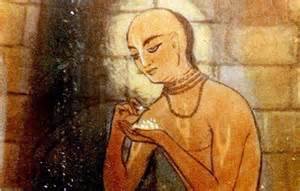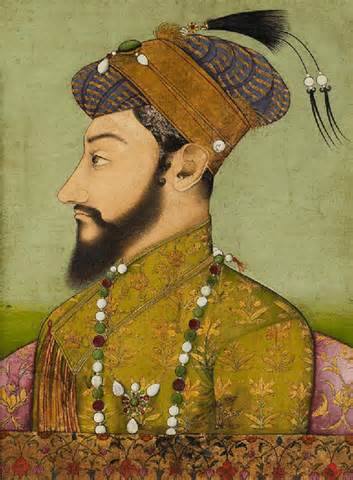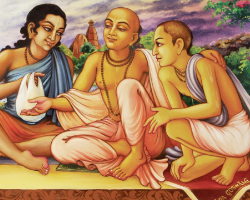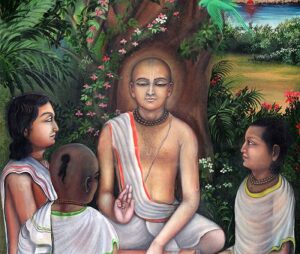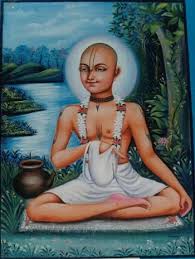The Sinful King and the Holy Lake
Introduction
Five hundred years ago in India, there lived a sinful king named Aurangzeb. He was notorious for his cruelty, particularly towards Brahmanas. Every day before breakfast, he demanded to see a collection of Brahmin threads from the Brahmanas killed the previous day, amounting to the weight of his own heavy body.
The Journey for Water
One day, as Aurangzeb traveled with his vast army, they became extremely thirsty, including the war animals like horses and elephants. He sent his soldiers to find water.
Discovery of the Holy Lake
The soldiers eventually came across a most beautiful lake, where a sadhu was meditating and chanting the Hare Krishna mantra. The soldiers asked the sadhu if they could drink water from the lake. The holy man replied, “You can bring all men, all animals, and all plants from all over the universe, and there will always be enough water for everyone.”
Aurangzeb’s Encounter
Aurangzeb, along with his entire army, came to the lake. There were hundreds of thousands of them, and they all drank from the lake. Remarkably, there was always more and more water, no matter how much they drank.
The Inquiry
Grateful and intrigued, Aurangzeb asked the sadhu, “Who is responsible for this magical lake?”
Raghunath Das Goswami, the sadhu, replied, “This is Sri Sri Radha Kunda, where the divine couple, Sri Sri Radha Krishna, eternally perform their pastimes.”
Offer to Serve
Aurangzeb, humbled by the experience, asked, “Can I do any service to this lake or to you?”
Das Goswami sternly replied, “No, you cannot do any service here. You are a great offender to many devotees. You are not allowed to do any service or to be here. Now go away and never come back!”
The Moral
The sinful king Aurangzeb left with his army, realizing his unworthiness. This story serves as a powerful reminder that as long as we are offenders to devotees, we cannot enter the spiritual realm of divine bhakti life.
Spiritual Lesson
This story, told at Radha Kunda, emphasizes the importance of respecting devotees and the power of divine grace. It illustrates that divine mercy and spiritual opportunities are accessible only to those who are pure in heart and free from offenses against devotees.
Relevant Verse
Sri Krishna says in the Bhagavad Gita 9.22:
ananyas chintayanto mam ye janah paryupasate tesham nityabhiyuktanam yoga-kshemam vahamy aham
“But those who always worship Me with exclusive devotion, meditating on My transcendental form—to them I carry what they lack, and I preserve what they have.”
Conclusion
May we all strive to be humble, respectful, and devoted in our spiritual practice, always remembering the supreme importance of pure devotion and respect for all devotees.
Hare Krishna, Hare Krishna, Krishna Krishna, Hare Hare Hare Rama, Hare Rama, Rama Rama, Hare Hare.
PS: I humbly request all the devotees to please forward and share this moral/instructive story they hear so that everyone can benefit by hearing about Krishna and His dear devotees

